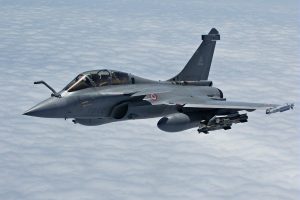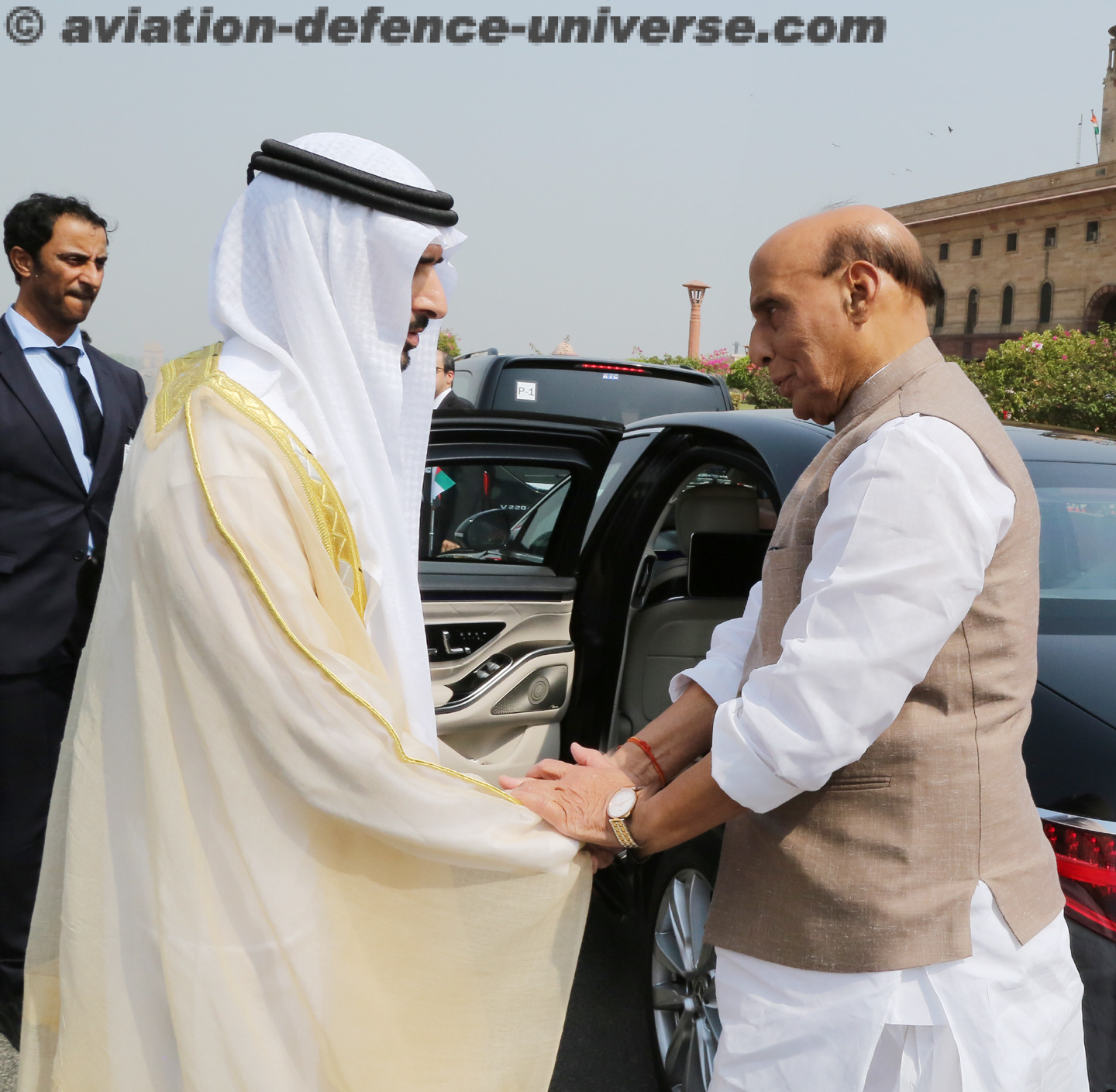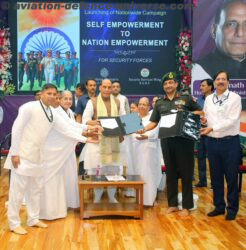- The apex court
 on the decision making process of Modi Government Rafale procurement decision of 36 Rafales
on the decision making process of Modi Government Rafale procurement decision of 36 Rafales
New Delhi. 14 December 2018. “Our country cannot afford to be unprepared/underprepared in a situation where our adversaries are stated to have acquired not only 4th Generation, but even 5th Generation Aircrafts, of which, we have none,” said the Supreme Court judgement in response to the PIL’s filed against the Modi Government’s Rafale deal .
In the Supreme Court judgement on the Rafale Deal the first clarification was on the decisionmaking process of the Government of India on the Modi Government Rafale procurement decision of 36 Rafales from Dassault Aviation of France.
The Supreme Court judgement says as far as the endeavour to procure 126 fighter aircrafts is concerned, it has been stated that the contract negotiations could not be concluded, inter alia, on account of unresolved issues between the OEM and HAL. These have been set out asunder:
“i) ManHours that would be required to produce the aircraft in India: HAL required 2.7 times higher ManHours compared to the French side for the manufacture of Rafale aircraft in India.
- ii) Dassault Aviation as the seller was required to undertake necessary contractual obligation for 126 aircraft (18 direct flyaway and 108 aircraft manufactured in India) as per RFP Issues related to contractual obligation and responsibility for 108 aircraft manufactured in India could not be resolved.”
The court added that the aforesaid issues are stated to have been unresolved for more than three years. Such delay is said to have impacted the cost of acquisition, as the offer was with ‘inbuilt escalation’ and was influenced by EuroRupee exchange rate variations. The stalemate resulted in the process of RFP withdrawal being initiated in March 2015. In this interregnum period, adversaries of the country, qua defence issues, inducted modern aircrafts and upgraded their older versions. This included induction of even 5th Generation Stealth Fighter Aircrafts of almost 20 squadrons, effectively reducing the combat potential of our defence forces. In such a situation, government-togovernment negotiations resulted in conclusion of the IGA for the supply of 36 Rafale Aircrafts, as part of a separate process.
The requisite steps are stated to have been followed, as per DPP 2013. An INT7 was constituted to negotiate the terms and Indian Negotiating Team 17 conditions, which commenced in May 2015 and continued till April 2016. In this period of time, a total of 74 meetings were held, including 48 internal INT meetings and 26 external INT meetings with the French side. It is the case of the official respondents that the INT completed its negotiations and arrived at better terms relating to price, delivery and maintenance, as compared to the MMRCA offer of Dassault. This was further processed for inter ministerial consultations and the approval of the CCS was also obtained, finally, resulting in signing of the agreement. This was in conformity with the process, as per para 72 of DPP 2013.
The Court informed that it is a say of the petitioners that para 71 envisages three eventualities, where the question of entering into an IGA would arise, which have not arisen in the present case:
(a) Proven technology and capabilities belonging to a friendly foreign country is identified by our Armed Forces while participating in joint international exercises;
(b) Large value weapon system/platform in service in a friendly foreign country is available for transfer or sale normally at a much lesser cost; or
(c) Requirement of procuring a specific stateoftheart equipment/platform where the Government of the OEM’s country might have imposed restriction on its sale and thus the equipment cannot be evaluated on ‘No Cost No Commitment’ basis.
In its decision the court said, “we have studied the material carefully. We have also the benefit of interacting with senior Air Force Officers who answered Court queries in respect of different aspects, including that of the acquisition process and pricing. We are satisfied that there is no occasion to really doubt the process, and even if minor deviations have occurred, that would not result in either setting aside the contract or requiring a detailed scrutiny by the Court. We have been informed that joint exercises have taken place, and that there is a financial advantage to our nation. It cannot be lost sight of, that these are contracts of defence procurement which should be subject to a different degree and depth of judicial review. Broadly, the processes have been followed. The need for the aircrafts is not in doubt. The quality of the aircraft is not in question. It is also a fact that the long negotiations for procurement of 126 MMRCAs have not produced any result, and merely conjecturing that the initial RFP could have resulted in a contract is of no use. The hard fact is that not only was the contract not coming forth but the negotiations had come practically to an end, resulting in a recall of the RFP. We cannot sit in judgment over the wisdom of deciding to go in for purchase of 36 aircrafts in place of 126. We cannot possibly compel the Government to go in for purchase of 126 aircraft. This is despite the fact that even before the withdrawal of RFP, an announcement came to be made in April 2015 about the decision to go in only for 36 aircrafts. Our country cannot afford to be unprepared/underprepared in a situation where our adversaries are stated to have acquired not only 4th Generation, but even 5th Generation Aircrafts, of which, we have none. It will not be correct for the Court to sit as an appellate authority to scrutinize each aspect of the process of acquisition.”
































































































































